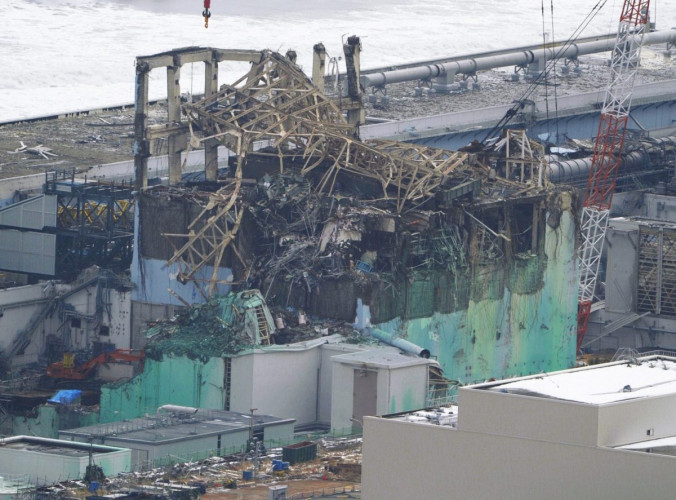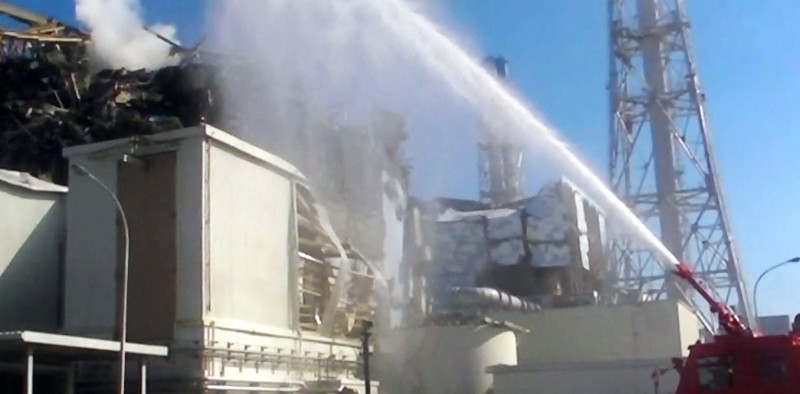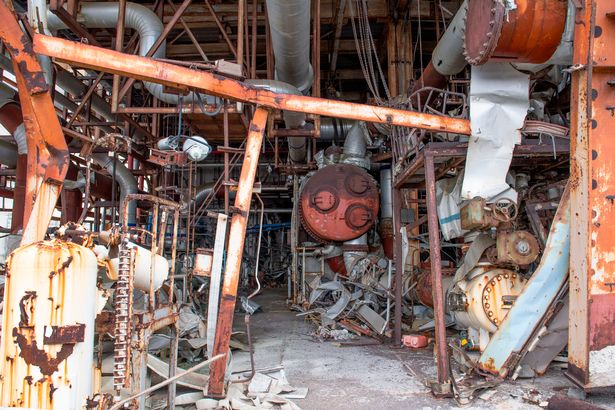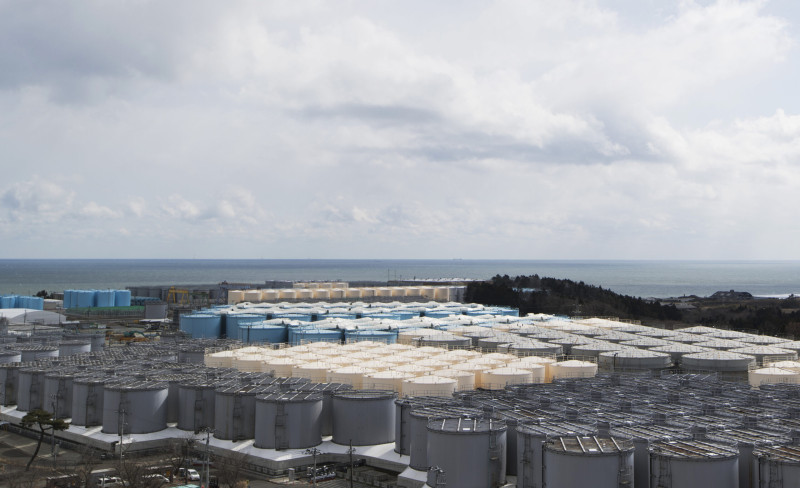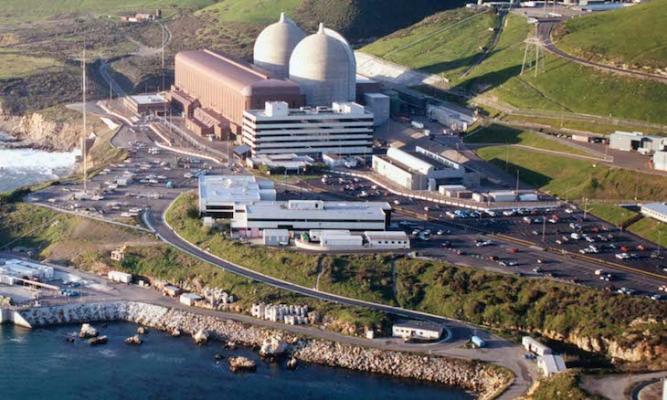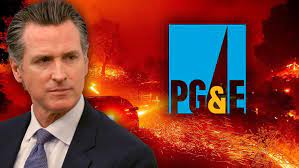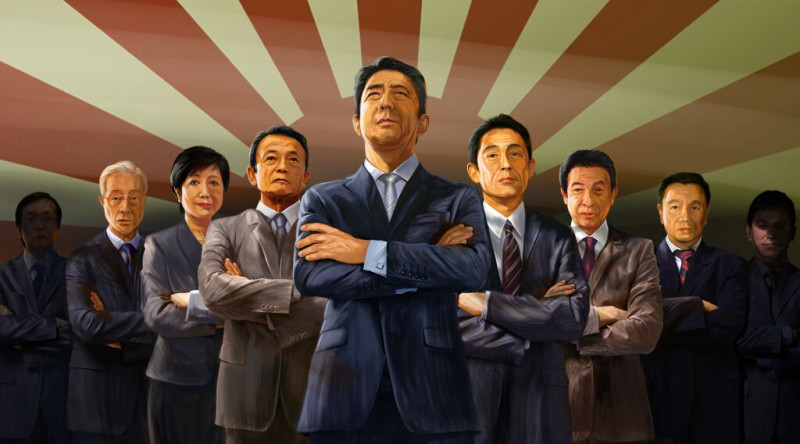From the Open-Publishing Calendar
From the Open-Publishing Newswire
Indybay Feature
The Fukushima Catastrophe Continues 12 Years After The Meltdowns
March 11 is the 12th anniversary of the Fukushima earthquake and meltdown of three reactors. The disaster continues and the melted nuclear rods still remain in the broken reactors and have to be cooled by water which then becomes radiated. Two activists talk about the present situation after 12 years.
On the12th anniversary of the Fukushima earthquake and meltdown of three nuclear reactors the catastrophe continues. The melted nuclear rods have still not been removed, the government is planning to dump 1.3 million tons of tritium laced water into the Pacific ocean and the government wants to spread the radioactive waste throughout the country while opening up more nuclear plants and expanding the life of the plants for decades more. It is also using the war
in Ukraine to fully militarize the country included supporting nuclear weapons for Japan and expanding US bases in Okinawa.
Chizu Hamada of No Nukes Action Committee and Carol Hisasue of Mothers for Peace in San Louis Obispo are interviewed
This interview was done on 3/6/23
Additional Media:
Fukushima 2020 Olympics Nightmare: Is PM Abe Criminally Insane?
https://youtu.be/DUX0pcUQOMs
Tokyo 2020 The Radioactive Olympics With Dr. Alex Rosen Of IPPNW
https://youtu.be/t9rThrZWQ38
Toxic water level at Fukushima plant still not under control
http://www.asahi.com/ajw/articles/AJ201907280040.html
The Olympics, Fukushima, Capitalism & Creative Destruction
https://www.youtube.com/watch?v=q--d2iW4hic
Fukushima Never Again
https://www.youtube.com/watch?v=LU-Z4VLDGxU&t=2874s
Report From Fukushima And The Abe Government Expansion And Export Of Nuclear Plants
https://www.youtube.com/watch?v=10weYriSSP8&t=34s
Japanese Olympic chief to quit amid corruption allegations scandal
Tsunekazu Takeda denies claims relating to payments to consultancy linked to son of disgraced ex-Olympic official
https://www.theguardian.com/world/2019/mar/19/japan-olympic-committee-president-tsunekazu-takeda-to-resign-corruption-allegations-scandal
Japan’s Olympics Chief Faces Corruption Charges in France
https://www.nytimes.com/2019/01/11/world/europe/japan-olympics-corruption-tsunekazu-takeda.html
Olympics For Whom? Global Depression, the New Cold War, and the Rio de Janeiro Olympic Games
https://www.youtube.com/watch?v=JPAok-8koS0;t=162s
The Super Bowl, NFL, Capitalism and Sports: The Cost, The Politics, Privatization & The Game
https://www.youtube.com/watch?v=EDrxSLm1heI&t=58s
JPN Abe Gov Pushes 2020 Olympics To Contaminated Fukushima To Continue Cover-up
https://www.youtube.com/watch?v=sNPlstyFvmY&t=137s
Fukushima Never Again
https://www.youtube.com/watch?v=LU-Z4VLDGxU&t=1776s
For additional information:
No Nukes Action
http://nonukesaction.wordpress.com/
Mothers For Peace
http://mothersforpeace.org/
Labor Video Project
http://www.labormedia.net
Little progress seen in removing fuel debris at Fukushima plant
https://www.asahi.com/ajw/articles/14854929
By RYO SASAKI/ Staff Writer
March 6, 2023 at 19:08 JST
Photo/Illutration
The No. 1 reactor at Tokyo Electric Power Co.’s Fukushima No. 1 nuclear power plant on Jan. 19 (Shigetaka Kodama)
Photo/Illutration
Photo/Illutration
Tokyo Electric Power Co. has little to show in removing fuel debris at its Fukushima No. 1 nuclear power plant in the 12 years since the nuclear disaster started.
The company, in fact, has postponed the work.
An estimated 880 tons of fuel debris remain in the No. 1, 2 and 3 nuclear reactors at the plant.
Remote-control operations must be used to remove the fuel debris because radiation levels in the reactor buildings could kill a person within one hour.
TEPCO had initially planned to start removing fuel debris at the No. 2 reactor, where the level of radiation is comparatively low, by the end of 2022.
However, the company announced in August 2022 that it had abandoned this target, citing delays in developing a robotic arm that could be used to remove the debris.
The company set a new target to start the removal work in the second half of fiscal 2023.
The government and TEPCO aim to complete the decommissioning of the stricken plant between 2041 and 2051.
However, the company’s first goal is to test the retrieval of only several grams of fuel debris. It still hasn’t decided how it will conduct larger-scale removal.
TEPCO has also not explained when it will start removing fuel debris at the No. 1 and No. 3 reactors.
A “submergence method” is under consideration to remove fuel debris from the No. 3 nuclear reactor, but it’s still unclear whether it will be implemented.
With the submergence method, workers would cover the building that houses the No. 3 reactor with a metal structure, fill the inside of the structure with water to submerge the reactor, and then remove fuel debris from the upper part of the building.
Another worrying factor about the Fukushima nuclear power plant is that the foundation, or “pedestal,” supporting the No. 1 reactor’s pressure vessel has deteriorated so much that the reinforcing bars are now exposed.
Concerns have been expressed about the earthquake resistance of the pedestal.
Fukushima plant head: Too early to predict decommissioning
https://mainichi.jp/english/articles/20230303/p2g/00m/0na/016000c
March 3, 2023 (Mainichi Japan)
A worker helps direct a truck driver as he stands near tanks used to store treated radioactive water used to cool down melted fuel at the Fukushima Daiichi nuclear power plant, run by Tokyo Electric Power Company Holdings (TEPCO), in the town of Okuma, northeastern Japan, on March 3, 2022. (AP Photo/Hiro Komae, File)
TOKYO (AP) -- The head of Japan's wrecked Fukushima nuclear plant says details of the damage inside its reactors are only beginning to be known 12 years after it was hit by a massive earthquake and tsunami, making it difficult to foresee when or how its decommissioning will be completed.
The most pressing immediate task is to safely start releasing large amounts of treated but still radioactive water from the plant into the sea, Akira Ono said in an interview with The Associated Press.
The March 2011 earthquake and tsunami damaged cooling systems at the Fukushima Daiichi plant, causing three reactors to melt and release large amounts of radiation. The operator, Tokyo Electric Power Company Holdings Inc., has been able to stabilize the plant to the point where the company can better plan a decommissioning strategy, expected to be lengthy and exceedingly challenging.
"Going forward, we have to face unconceivably difficult work such as retrieving the melted debris" from inside the reactors, said Ono, who heads the plant and is president of Fukushima Daiichi Decontamination & Decommissioning Engineering Co.
Earlier this year, a remote-controlled underwater vehicle successfully collected a tiny sample from inside one of the three melted reactors -- only a spoonful of about 880 tons of highly radioactive melted fuel and other debris that must be safely removed and stored.
The status of the debris in the primary containment chambers of the Unit 1, 2 and 3 reactors remains largely unknown, Ono said.
Removal of melted debris is set to start in Unit 2 sometime after September this year following a nearly two-year delay. The removal of spent fuel in the Unit 1 reactor's cooling pool is set to begin in 2027 after a 10-year delay because of the need to dismantle parts of the building damaged by hydrogen explosions.
The plant should be ready for workers to finally concentrate on removing the melted debris from the reactors after all spent fuel is taken out of the cooling pools by 2031, Ono said.
The government is maintaining its original goal of completing the plant's decommissioning by 2051. But some experts say removing all of the melted fuel debris by then is impossible and suggest a Chernobyl-style entombment of the plant, an option that could help reduce health risks while the plant's radioactivity gradually decreases.
"I still consider this goal as a major guidepost," Ono said. "We can't say what will happen in 30 years. We can't say, but roughly imagining the next 30 years, I believe that it is necessary to carefully and precisely build up the current plan in order to safely, steadily and quickly proceed with the decommissioning."
Before that, however, the biggest issue is the disposal of large amounts of treated but still radioactive water from the plant, he said.
Water used to cool the three damaged reactors has leaked into the basements of the reactor buildings and has been collected and stored in about 1,000 tanks that cover much of the plant's grounds.
The government and TEPCO say the tanks must be removed so facilities can be built for the plant's decommissioning. The tanks are expected to reach their capacity of 1.37 million tons later this year.
Most of the radioactivity can be removed from the water during treatment, but tritium cannot be separated, and low levels of some other radionuclides also remain. The government and TEPCO say they will ensure the water's radioactivity is far below legal limits and will dilute it with large amounts of seawater before its planned discharge into the ocean.
Local fishing communities have fiercely objected to the plan, saying their already damaged business will suffer more because of the negative image caused by the water release. Neighboring countries, including China and South Korea, and Pacific Island nations have also raised safety concerns.
TEPCO plans to finish construction of the facilities needed for the water discharge in the spring and then receive safety approval from nuclear regulators. A final inspection and report by an International Atomic Energy Agency mission are expected before the release begins.
The operator still needs to work on an "easy to understand" explanation and scientific evidence to help people understand the release, Ono said.
"The decommissioning of Fukushima Daiichi itself is based on the understanding and trust of everyone in society," he said.
Japanese Cabinet approves bill for nuclear reactors to run past 60 years
https://www.asahi.com/ajw/articles/14850139
By SHIKI IWASAWA/ Staff Writer
February 28, 2023 at 17:53 JST
Photo/Illutration
The Mihama nuclear power plant in Fukui Prefecture (Satoru Iizuka)
The Cabinet approved a bill on Feb. 28 that would allow nuclear reactors to operate beyond 60 years despite strong opposition over safety concerns.
The bill would extend the limit on the reactors’ operational periods, which was introduced following the triple meltdown at the Fukushima No. 1 nuclear power plant in 2011.
However, the bill is expected to be hotly debated at the Diet as a member of the Nuclear Regulation Authority and opposition parties have voiced objections about its contents and how the government has ignored their concerns.
The bill would revise five laws, including the Atomic Energy Basic Law, the Law on the Regulation of Nuclear Reactors and the Electricity Business Law.
Lawmakers will discuss the revisions of these laws all together at the Diet.
After the 2011 disaster, the Law on the Regulation of Nuclear Reactors’ revision determined that the life span of nuclear reactors should be 40 years, in principle, while allowing an extension of up to 20 years with NRA approval.
The government’s bill preserves this framework--the operational period of 40 years, in principle, and an extension of up to 20 years.
However, it also allows nuclear reactors to operate beyond 60 years by excluding the time during which nuclear reactors are shut down for safety inspections or court-issued injunctions.
Thus, if a reactor is shut down for 10 years for such reasons, its operational period can be extended to up to 70 years.
The bill would remove the rule about nuclear reactors’ operational periods from the Law on the Regulation of Nuclear Reactors, which is under the NRA’s jurisdiction.
The rule will, instead, be added to the Electricity Business Law, which falls under the industry ministry’s jurisdiction.
Thus, if an electricity company requests the operational period of its nuclear reactor be extended, an industry minister will assess whether the extension will lead to a stable supply of electricity or decarbonization.
This means an industry minister will make such an assessment from the standpoint of electricity usage, not safety.
An industry minister will approve the request if it is judged appropriate.
The NRA will continue to be responsible for ensuring the safety of nuclear reactors.
It will assess how well nuclear reactors have aged every 10 years or earlier once they have been in service for 30 years.
The periods in which nuclear reactors are shut down will be included when counting the reactors’ operational period toward the 30-year starting point of the assessment.
Akira Ishiwatari, one of the five members of the NRA panel, has opposed this new system, saying that concrete criteria or methods for the assessment haven’t been decided.
He said during an NRA meeting earlier this month that the government's policy "is not a change that would make nuclear reactors safer."
Opposition parties have also expressed concern saying, “The Cabinet shouldn’t approve the bill until criteria or methods for the NRA assessment are clearly established.”
However, the government approved the bill at the Cabinet meeting on Feb. 28, ignoring such views.
in Ukraine to fully militarize the country included supporting nuclear weapons for Japan and expanding US bases in Okinawa.
Chizu Hamada of No Nukes Action Committee and Carol Hisasue of Mothers for Peace in San Louis Obispo are interviewed
This interview was done on 3/6/23
Additional Media:
Fukushima 2020 Olympics Nightmare: Is PM Abe Criminally Insane?
https://youtu.be/DUX0pcUQOMs
Tokyo 2020 The Radioactive Olympics With Dr. Alex Rosen Of IPPNW
https://youtu.be/t9rThrZWQ38
Toxic water level at Fukushima plant still not under control
http://www.asahi.com/ajw/articles/AJ201907280040.html
The Olympics, Fukushima, Capitalism & Creative Destruction
https://www.youtube.com/watch?v=q--d2iW4hic
Fukushima Never Again
https://www.youtube.com/watch?v=LU-Z4VLDGxU&t=2874s
Report From Fukushima And The Abe Government Expansion And Export Of Nuclear Plants
https://www.youtube.com/watch?v=10weYriSSP8&t=34s
Japanese Olympic chief to quit amid corruption allegations scandal
Tsunekazu Takeda denies claims relating to payments to consultancy linked to son of disgraced ex-Olympic official
https://www.theguardian.com/world/2019/mar/19/japan-olympic-committee-president-tsunekazu-takeda-to-resign-corruption-allegations-scandal
Japan’s Olympics Chief Faces Corruption Charges in France
https://www.nytimes.com/2019/01/11/world/europe/japan-olympics-corruption-tsunekazu-takeda.html
Olympics For Whom? Global Depression, the New Cold War, and the Rio de Janeiro Olympic Games
https://www.youtube.com/watch?v=JPAok-8koS0;t=162s
The Super Bowl, NFL, Capitalism and Sports: The Cost, The Politics, Privatization & The Game
https://www.youtube.com/watch?v=EDrxSLm1heI&t=58s
JPN Abe Gov Pushes 2020 Olympics To Contaminated Fukushima To Continue Cover-up
https://www.youtube.com/watch?v=sNPlstyFvmY&t=137s
Fukushima Never Again
https://www.youtube.com/watch?v=LU-Z4VLDGxU&t=1776s
For additional information:
No Nukes Action
http://nonukesaction.wordpress.com/
Mothers For Peace
http://mothersforpeace.org/
Labor Video Project
http://www.labormedia.net
Little progress seen in removing fuel debris at Fukushima plant
https://www.asahi.com/ajw/articles/14854929
By RYO SASAKI/ Staff Writer
March 6, 2023 at 19:08 JST
Photo/Illutration
The No. 1 reactor at Tokyo Electric Power Co.’s Fukushima No. 1 nuclear power plant on Jan. 19 (Shigetaka Kodama)
Photo/Illutration
Photo/Illutration
Tokyo Electric Power Co. has little to show in removing fuel debris at its Fukushima No. 1 nuclear power plant in the 12 years since the nuclear disaster started.
The company, in fact, has postponed the work.
An estimated 880 tons of fuel debris remain in the No. 1, 2 and 3 nuclear reactors at the plant.
Remote-control operations must be used to remove the fuel debris because radiation levels in the reactor buildings could kill a person within one hour.
TEPCO had initially planned to start removing fuel debris at the No. 2 reactor, where the level of radiation is comparatively low, by the end of 2022.
However, the company announced in August 2022 that it had abandoned this target, citing delays in developing a robotic arm that could be used to remove the debris.
The company set a new target to start the removal work in the second half of fiscal 2023.
The government and TEPCO aim to complete the decommissioning of the stricken plant between 2041 and 2051.
However, the company’s first goal is to test the retrieval of only several grams of fuel debris. It still hasn’t decided how it will conduct larger-scale removal.
TEPCO has also not explained when it will start removing fuel debris at the No. 1 and No. 3 reactors.
A “submergence method” is under consideration to remove fuel debris from the No. 3 nuclear reactor, but it’s still unclear whether it will be implemented.
With the submergence method, workers would cover the building that houses the No. 3 reactor with a metal structure, fill the inside of the structure with water to submerge the reactor, and then remove fuel debris from the upper part of the building.
Another worrying factor about the Fukushima nuclear power plant is that the foundation, or “pedestal,” supporting the No. 1 reactor’s pressure vessel has deteriorated so much that the reinforcing bars are now exposed.
Concerns have been expressed about the earthquake resistance of the pedestal.
Fukushima plant head: Too early to predict decommissioning
https://mainichi.jp/english/articles/20230303/p2g/00m/0na/016000c
March 3, 2023 (Mainichi Japan)
A worker helps direct a truck driver as he stands near tanks used to store treated radioactive water used to cool down melted fuel at the Fukushima Daiichi nuclear power plant, run by Tokyo Electric Power Company Holdings (TEPCO), in the town of Okuma, northeastern Japan, on March 3, 2022. (AP Photo/Hiro Komae, File)
TOKYO (AP) -- The head of Japan's wrecked Fukushima nuclear plant says details of the damage inside its reactors are only beginning to be known 12 years after it was hit by a massive earthquake and tsunami, making it difficult to foresee when or how its decommissioning will be completed.
The most pressing immediate task is to safely start releasing large amounts of treated but still radioactive water from the plant into the sea, Akira Ono said in an interview with The Associated Press.
The March 2011 earthquake and tsunami damaged cooling systems at the Fukushima Daiichi plant, causing three reactors to melt and release large amounts of radiation. The operator, Tokyo Electric Power Company Holdings Inc., has been able to stabilize the plant to the point where the company can better plan a decommissioning strategy, expected to be lengthy and exceedingly challenging.
"Going forward, we have to face unconceivably difficult work such as retrieving the melted debris" from inside the reactors, said Ono, who heads the plant and is president of Fukushima Daiichi Decontamination & Decommissioning Engineering Co.
Earlier this year, a remote-controlled underwater vehicle successfully collected a tiny sample from inside one of the three melted reactors -- only a spoonful of about 880 tons of highly radioactive melted fuel and other debris that must be safely removed and stored.
The status of the debris in the primary containment chambers of the Unit 1, 2 and 3 reactors remains largely unknown, Ono said.
Removal of melted debris is set to start in Unit 2 sometime after September this year following a nearly two-year delay. The removal of spent fuel in the Unit 1 reactor's cooling pool is set to begin in 2027 after a 10-year delay because of the need to dismantle parts of the building damaged by hydrogen explosions.
The plant should be ready for workers to finally concentrate on removing the melted debris from the reactors after all spent fuel is taken out of the cooling pools by 2031, Ono said.
The government is maintaining its original goal of completing the plant's decommissioning by 2051. But some experts say removing all of the melted fuel debris by then is impossible and suggest a Chernobyl-style entombment of the plant, an option that could help reduce health risks while the plant's radioactivity gradually decreases.
"I still consider this goal as a major guidepost," Ono said. "We can't say what will happen in 30 years. We can't say, but roughly imagining the next 30 years, I believe that it is necessary to carefully and precisely build up the current plan in order to safely, steadily and quickly proceed with the decommissioning."
Before that, however, the biggest issue is the disposal of large amounts of treated but still radioactive water from the plant, he said.
Water used to cool the three damaged reactors has leaked into the basements of the reactor buildings and has been collected and stored in about 1,000 tanks that cover much of the plant's grounds.
The government and TEPCO say the tanks must be removed so facilities can be built for the plant's decommissioning. The tanks are expected to reach their capacity of 1.37 million tons later this year.
Most of the radioactivity can be removed from the water during treatment, but tritium cannot be separated, and low levels of some other radionuclides also remain. The government and TEPCO say they will ensure the water's radioactivity is far below legal limits and will dilute it with large amounts of seawater before its planned discharge into the ocean.
Local fishing communities have fiercely objected to the plan, saying their already damaged business will suffer more because of the negative image caused by the water release. Neighboring countries, including China and South Korea, and Pacific Island nations have also raised safety concerns.
TEPCO plans to finish construction of the facilities needed for the water discharge in the spring and then receive safety approval from nuclear regulators. A final inspection and report by an International Atomic Energy Agency mission are expected before the release begins.
The operator still needs to work on an "easy to understand" explanation and scientific evidence to help people understand the release, Ono said.
"The decommissioning of Fukushima Daiichi itself is based on the understanding and trust of everyone in society," he said.
Japanese Cabinet approves bill for nuclear reactors to run past 60 years
https://www.asahi.com/ajw/articles/14850139
By SHIKI IWASAWA/ Staff Writer
February 28, 2023 at 17:53 JST
Photo/Illutration
The Mihama nuclear power plant in Fukui Prefecture (Satoru Iizuka)
The Cabinet approved a bill on Feb. 28 that would allow nuclear reactors to operate beyond 60 years despite strong opposition over safety concerns.
The bill would extend the limit on the reactors’ operational periods, which was introduced following the triple meltdown at the Fukushima No. 1 nuclear power plant in 2011.
However, the bill is expected to be hotly debated at the Diet as a member of the Nuclear Regulation Authority and opposition parties have voiced objections about its contents and how the government has ignored their concerns.
The bill would revise five laws, including the Atomic Energy Basic Law, the Law on the Regulation of Nuclear Reactors and the Electricity Business Law.
Lawmakers will discuss the revisions of these laws all together at the Diet.
After the 2011 disaster, the Law on the Regulation of Nuclear Reactors’ revision determined that the life span of nuclear reactors should be 40 years, in principle, while allowing an extension of up to 20 years with NRA approval.
The government’s bill preserves this framework--the operational period of 40 years, in principle, and an extension of up to 20 years.
However, it also allows nuclear reactors to operate beyond 60 years by excluding the time during which nuclear reactors are shut down for safety inspections or court-issued injunctions.
Thus, if a reactor is shut down for 10 years for such reasons, its operational period can be extended to up to 70 years.
The bill would remove the rule about nuclear reactors’ operational periods from the Law on the Regulation of Nuclear Reactors, which is under the NRA’s jurisdiction.
The rule will, instead, be added to the Electricity Business Law, which falls under the industry ministry’s jurisdiction.
Thus, if an electricity company requests the operational period of its nuclear reactor be extended, an industry minister will assess whether the extension will lead to a stable supply of electricity or decarbonization.
This means an industry minister will make such an assessment from the standpoint of electricity usage, not safety.
An industry minister will approve the request if it is judged appropriate.
The NRA will continue to be responsible for ensuring the safety of nuclear reactors.
It will assess how well nuclear reactors have aged every 10 years or earlier once they have been in service for 30 years.
The periods in which nuclear reactors are shut down will be included when counting the reactors’ operational period toward the 30-year starting point of the assessment.
Akira Ishiwatari, one of the five members of the NRA panel, has opposed this new system, saying that concrete criteria or methods for the assessment haven’t been decided.
He said during an NRA meeting earlier this month that the government's policy "is not a change that would make nuclear reactors safer."
Opposition parties have also expressed concern saying, “The Cabinet shouldn’t approve the bill until criteria or methods for the NRA assessment are clearly established.”
However, the government approved the bill at the Cabinet meeting on Feb. 28, ignoring such views.
For more information:
https://youtu.be/B2eFRryo_Vs
Add Your Comments
We are 100% volunteer and depend on your participation to sustain our efforts!
Get Involved
If you'd like to help with maintaining or developing the website, contact us.
Publish
Publish your stories and upcoming events on Indybay.
Topics
More
Search Indybay's Archives
Advanced Search
►
▼
IMC Network


